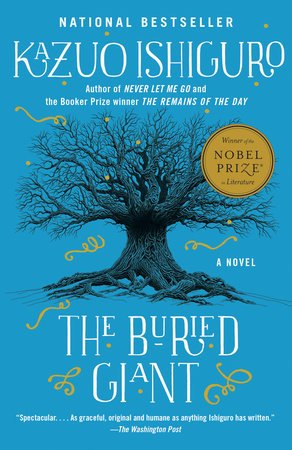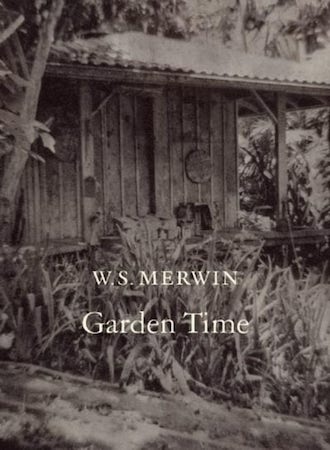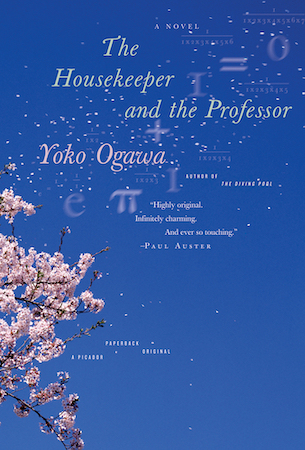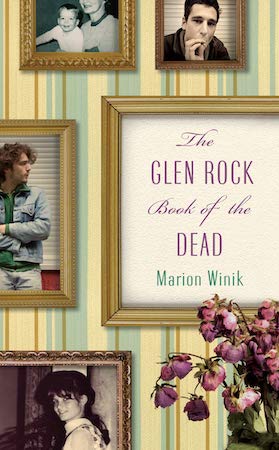Reading Lists
7 Books That Grapple With Memory and Loss
Tom Lin, author of "The Thousand Crimes of Ming Tsu," on the fallibility of recollection

And suddenly you find yourself standing in a different corner of your home, another room perhaps, no longer certain of why you had come here in the first place, to get something perhaps—but what it was you can no longer recall, and so you stand a little while longer. Perhaps you partially retrace your steps, recrossing the threshold, replaying your thoughts as best you can, trying to substitute faithful reenactment for remembrance. At last, if the stars have aligned, it hits you—ah, scissors, I came here to get a pair of scissors…
For something we trust so implicitly, memory too often fails us. We forget faces, miss appointments, lose car keys. Luckily, our individual memories do not have a monopoly on our access to the past. We safeguard the vanished past with objects, texts, tools. In doing so we create a constellation of remembrance, an inscription of our past upon the present.
These questions—of the past, of history, of the fallibility of memory—loomed large in my mind as I researched and wrote The Thousand Crimes of Ming Tsu, a Western set in 1869 featuring a Chinese American protagonist fighting his way west. Tens of thousands of Chinese laborers worked for the Central Pacific Railroad Company; many died in the process. And yet in the celebratory Golden Spike photograph, commemorating the completion of the Transcontinental Railroad, not a single Chinese worker is visible. Though their presence has been until recently largely ignored, their memory has not vanished. Traces of their labor still linger today, exerting ghostly force over our lives.
These 7 books explore these questions of memory and loss through a variety of lenses—fiction, nonfiction, and poetry. They represent remarkable examples of differing approaches to the vast issue of how our pasts propagate forward into our present.
The Buried Giant by Kazuo Ishiguro
Published two years before he received the Nobel Prize in Literature, Ishiguro’s novel follows an elderly couple, Axl and Beatrice, as they move through a medieval Britain beset by an amnestic mist. With enormous difficulty, people remember: wars, lovers, children. Axl and Beatrice know they have a son, but struggle to remember much beyond this bare fact. They embark on a quest to find him once more, encountering relics, residues, artifacts of memories without remembrances. Ishiguro’s prose is rhythmic, placid, profound; this book took him ten years to write, and it may well stay with you for longer.
The River of Consciousness by Oliver Sacks
The neurologist Sacks, two weeks before his death in 2015, outlined a collection of essays on the human experience and science that was to become this book. In ten essays of varying length, Sacks interrogates subjective experience and personal identity using lenses ranging from botany to neuroscience. One of the essays, “Memory,” discusses remembrance and the fallibility of human recollection; alongside its peers in this collection of essays, however, and in the wake of his death, all of Sacks’s musings seem to point towards some larger set of questions, where science and philosophy begin to feather into one another. Sacks’s affable voice and unmistakeable brilliance shine throughout.
Garden Time by W.S. Merwin
A slim volume of immense power, and also the last collection of new poems Merwin published in his lifetime. In lucid, sparkling lines, Merwin raises the shadowed past and asks it to stay awhile, just for a moment longer. Garden Time is Merwin at his absolute best: humble, poignant, and shining with love for living, and remembering. The circumstances of the book’s creation share in its profundity—Merwin wrote these poems as his eyesight deteriorated, and when he was no longer able to see, he dictated poems to his wife, to whom the book is dedicated.
The Housekeeper and the Professor by Yoko Ogawa, translated by Stephen Snyder
A housekeeper receives her new assignment: a brilliant mathematics professor who, 17 years prior, suffered anterograde amnesia after a serious car accident. His memory is intact up to the moment of his head injury; beyond that, for 17 years, he has lived in a moving window of 80 minutes of short-term memory. Being a clever man, however, he’s devised certain coping mechanisms—clipped to his suit are dozens of slips of paper, each reminding him of something he cannot remember. “New housekeeper,” reads one, accompanied by a little sketched portrait of the new housekeeper in question. The housekeeper and the professor, along with the housekeeper’s ten-year-old son, develop a friendship as close as it is strange. Rendered from the Japanese into an even-handed and clear English by Stephen Snyder, interspersed with mathematical formulae and diagrams, Ogawa’s novel deftly explores the limits of memory, personality, and care.
The Glen Rock Book of the Dead by Marion Winik
In the space of 100 pages, Winik pays poignant and often funny tribute to people in her life who have died. The book is a masterclass in character. Winik resurrects these memorialized dead as epithets—an occupation, a demonym, a relation—and pairs them with finely-wrought prose portraits that run two or three pages at most. In terms of pure word count, this book can be easily finished in a single sitting; in terms of weight and breadth, however, you’ll want to slow down, read and reread, if only to give these remembered phantoms a little more space to breathe, a little more time to linger.
Dunce by Mary Ruefle
A finalist for the 2020 Pulitzer Prize, Ruefle’s Dunce hums with the tension between the intensity of living and the certainty of dying. In Ruefle’s lines the ordinary finds itself alongside the numinous. Lines seem to torque and shift imperceptibly along their length, one after another, their net effect transporting you from a holiday party to a contemplation of a single moment of absolute presence. With a rhythm and cadence that calls to mind the subtle, yet inexorable power of a river current, or an incoming tide, Ruefle generates moments of vertiginous delight and startling beauty against a backdrop of mortality and its affordances.
Baron Wenckheim’s Homecoming by László Krasznahorkai, translated by Ottilie Mulzet
For those who are already acquainted with Krasznahorkai, this is 700 pages of the Hungarian luminary at his most apocalyptic and most hypnotic. For those encountering him for the first time, a warning: Krasznahorkai’s writing is demanding. Single sentences run on for pages. A litany of commas and more esoteric combinations of punctation carve up streams of consciousness into a thumping rhythm of quip and rejoinder, observation and derision, lunatic phantasmagoria and mind-numbing banality.
The novel is ostensibly about the Baron Wenckheim, who returns to his childhood town in Hungary to escape his gambling debts. There, he hopes to reunite with his childhood sweetheart, a woman named Marika. Also in the mix are a professor leading his field in moss research, his daughter, a neo-Nazi biker gang, the staff of the local newspaper, and what might be the physical manifestation of evil itself on Earth. None of this really matters; Krasznahorkai’s free-flowing sentences and disregard for conventions are the main draw here, as he grapples with the political and the historical—that is to say, with what kinds of memories our present might become for our future.
















